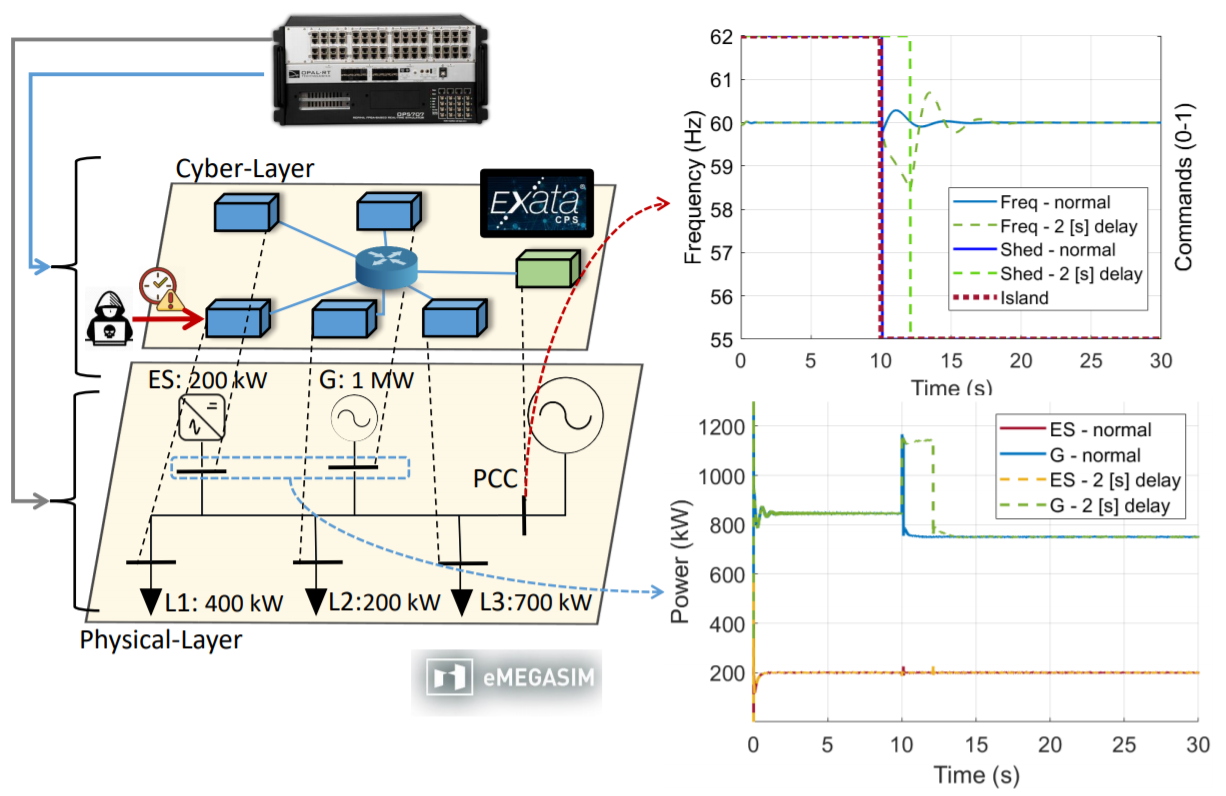Time Delay Attacks (TDA)
TDA is a time-based attack that destabilises the power system operation by delaying information exchanges. TDA could lead to detrimental effects such as out of step of generators, unwanted load shedding, islanding and possibly blackouts. In this case, a co-simulation setup is employed to visualize the detrimental effects of TDA on a microgrid. The setup consists of a conventional generator (G), one energy storage (ES) system, and three loads. L1 is a shedable load, L2 is a critical load, and L3 is a regular load. A 2-sec TDA is simulated for the microgrid on the cyber-layer simulated in EXataCPS. Figure 1 depicts a comparison between the normal operation of a load-shedding mechanism Vs a 2-secs TDA implemented as an attack on the load-shed controller of the microgrid. In these scenarios, the microgrid performs an islanding operation at t = 10 secs, and due to insufficient generation, the microgrid controller sends a load-shedding command to L1. As demonstrated in the graphs, in the TDA scenario, the load shedding command is delayed 2-secs causing the frequency of the microgrid to decrease below 59.5 Hz.

J. Ospina, I. Zografopoulos, X. Liu, and C. Konstantinou, ‘‘DEMO: Trustworthy cyberphysical energy systems: Time-delay attacks in a real-time co-simulation environment,’’ in Proc. Joint Workshop CPS&IoT Security and Privacy. New York, NY, USA: Association for Computing Machinery, Nov. 2020, p. 69, DOI: 10.1145/3411498.3422926